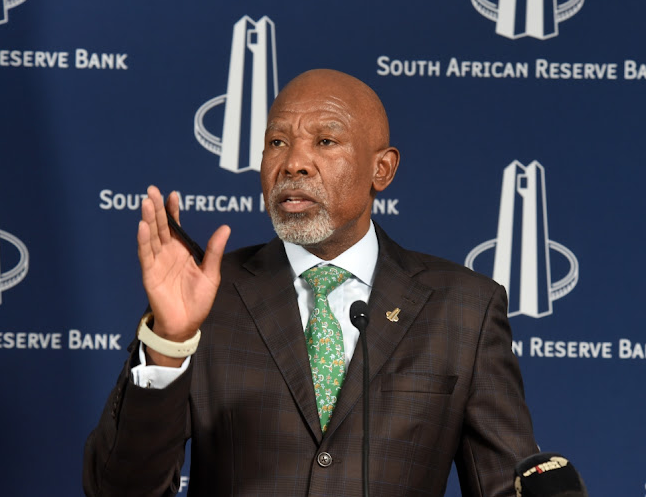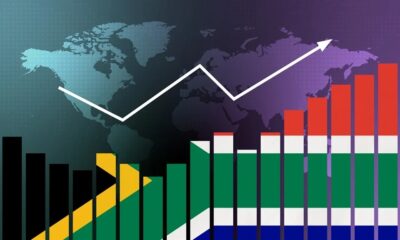Business
SARB Warns: Climate Change and Cyber Threats Endanger South Africa’s Financial Future

SARB Raises the Alarm: Climate Change, Cyber Threats and Economic Stagnation Risk Financial Stability
“Climate change will be an abiding challenge…” – SARB Governor Lesetja Kganyago
South Africa’s financial stability faces a triple threat: climate change, cyber risks, and sluggish economic growth, according to a sobering warning from the South African Reserve Bank (SARB) in its latest Financial Stability Review (FSR), released on Thursday.
The central bank’s message is clear: without urgent and coordinated responses, the country’s financial system could be severely impacted in the years ahead especially as climate-related and digital threats escalate.
The Climate Crisis is Financial, Too
SARB’s FSR underscores a growing global consensus: climate change is no longer just an environmental issue, it’s an economic and financial risk.
The bank outlined two key climate-related threats:
-
Physical risks, such as the increasing frequency of extreme weather events like floods and droughts already affecting South Africa.
-
Transition risks, which arise from a chaotic or slow global shift to low-carbon economies, placing pressure on financial institutions tied to carbon-intensive sectors.
South Africa’s dependence on coal and other carbon-heavy industries makes it particularly vulnerable to these transition risks. Governor Lesetja Kganyago highlighted that the country’s first-ever climate risk stress test for major banks showed early signs of resilience — but also exposed key vulnerabilities.
“Climate change will be an abiding challenge with impacts that include risks to financial stability,” Kganyago said.
The SARB has since introduced a new framework to assess and manage these risks, aiming to align its monitoring processes with international best practices.
Cybersecurity: An Invisible, Growing Threat
Alongside climate change, cyber risks were named one of the top threats to South Africa’s financial system.
SARB pointed to three factors compounding the problem:
-
Rapid technological change
-
Global political instability
-
A significant cybersecurity skills shortage
Despite the severity of cyber threats, South Africa’s cybersecurity spending remains below 0.25% of GDP, lagging behind developed economies. The average cost of a data breach in 2024 was R52.3 million ($2.78 million) — and that figure remains stubbornly high.
To make matters worse, load shedding continues to weaken cybersecurity resilience, exposing networks to disruption and attack when backup power systems lack robust protections.
A Troubled Economy Adds Fuel to the Fire
South Africa’s real GDP growth has averaged a dismal 0.54% annually since 2018, the SARB noted, highlighting deep-rooted problems in the local economy:
-
Weak private investment
-
Growing inequality
-
High unemployment
The Reserve Bank also warned of potential trade shocks linked to the possible expiry of the African Growth and Opportunity Act (AGOA), which currently allows duty-free access to the U.S. market.
If AGOA is not renewed — and tariffs of 25% are imposed on South African exports — GDP could shrink by up to 0.69%, according to SARB’s models. That scenario also includes a 15% depreciation in the rand due to shaken investor confidence.
The SARB’s message is unambiguous: systemic risks are evolving, and South Africa must act fast. Climate change, cyber vulnerabilities, and economic stagnation are no longer future problems — they are current realities.
While South Africa’s financial system has shown resilience in the face of global shocks like the war in Ukraine and the Middle East, the country’s domestic vulnerabilities could be its undoing if left unchecked.
A whole-of-society response is needed, combining public and private sector efforts to:
-
Transition to greener economic activities
-
Strengthen cybersecurity capacity
-
Reignite inclusive economic growth
The warning has been issued. The real test lies in whether South Africa will listen and act in time.
{Source: IOL}
Follow Joburg ETC on Facebook, Twitter , TikTok and Instagram
For more News in Johannesburg, visit joburgetc.com



























